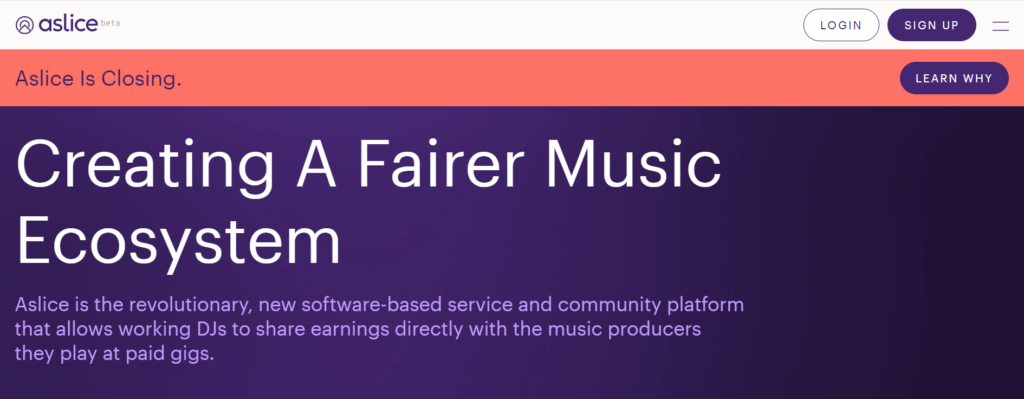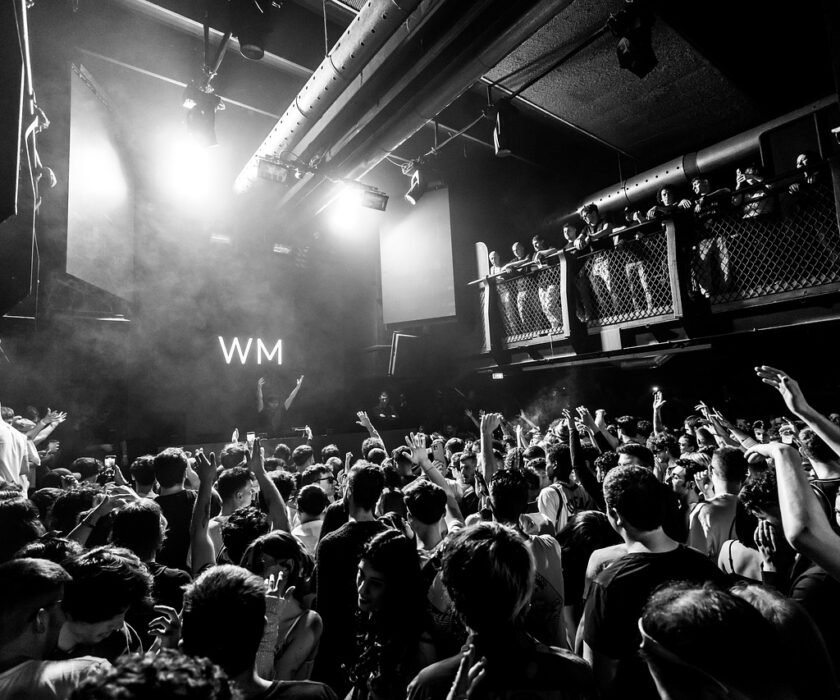After a promising start, Aslice, the DJ-driven revenue-sharing platform, has officially shut down. Founded by renowned techno DJ DVS1, Aslice aimed to address one of the music industry’s persistent issues: ensuring that artists, particularly those behind the music played by DJs, are fairly compensated. The platform’s closure marks the end of an ambitious project that sought to make revenue sharing more equitable within the DJ community.

Launched in 2021, Aslice was created with the intention of establishing a fairer economic model for musicians, particularly the producers whose tracks often form the backbone of DJ sets. The concept was simple: DJs would voluntarily share a portion of their earnings from performances with the producers of the music they played. This was seen as a direct way to ensure that the original creators received some of the financial rewards, as club gigs, festival sets, and DJ tours continue to generate significant income, while producers often struggle to make a living from streaming or sales alone.
Aslice’s system relied on the goodwill and transparency of DJs, encouraging them to upload their setlists, track the music they played, and share revenue based on that usage. It was a groundbreaking idea that aimed to close the gap between DJs who profit from performances and the producers whose tracks enable those performances.
Why Aslice Shut Down?
Despite its innovative approach and initial positive reception within the DJ community, Aslice announced its closure this week. While the platform attracted a dedicated user base and received praise for its artist-centric ethos, it ultimately faced several challenges that made sustaining operations difficult.
One of the primary reasons cited for Aslice’s closure was the lack of widespread adoption. While some high-profile DJs embraced the platform and contributed to its vision, getting a critical mass of DJs to consistently use it proved to be a hurdle. Many DJs, even those who supported the concept, found it difficult to integrate Aslice into their workflow or may have been hesitant to commit to the revenue-sharing model.
Additionally, the platform relied on a voluntary system, meaning it did not generate its own revenue stream that could ensure its operational sustainability. With no mandatory fees or financial infrastructure to back it, Aslice struggled to grow beyond its niche user base.
In an emotional statement, DVS1 expressed his disappointment over the shutdown, acknowledging that while Aslice achieved significant milestones, it ultimately couldn’t continue in its current form without broader industry support.
The Future of Revenue Sharing in Electronic Music
The closure of Aslice highlights the ongoing difficulties faced by the music industry when it comes to fairly distributing revenue. With streaming platforms continuing to dominate and physical music sales dwindling, musicians are left searching for new ways to generate income. Platforms like Bandcamp have made strides in ensuring artists receive fairer shares of profits, but few initiatives have specifically targeted the relationship between DJs and producers.

Aslice’s failure to gain the traction it needed could serve as a learning opportunity for the industry. The idea of revenue sharing between DJs and producers is likely to remain relevant, especially as conversations about financial equity in music continue. Future solutions may need to find a balance between voluntary participation and a more formalized system that ensures both transparency and ease of use for DJs and producers alike.
Aslice may no longer be active, but its mission leaves a lasting imprint on the electronic music world. Founded on a noble idea of fairness and economic justice for producers, the platform succeeded in raising awareness about the imbalance in DJ and producer revenues. Their team announced the deadline for final payouts, December 31 this year, noting that all unclaimed earnings will be donated to charities in early 2025. Additionally, Aslice published their data in a report ‘A slice of Fairness‘, showing the total amount shared by DJs to producers and exploring their connections. It is a call-to-action report much needed for the electronic music industry professionals.


